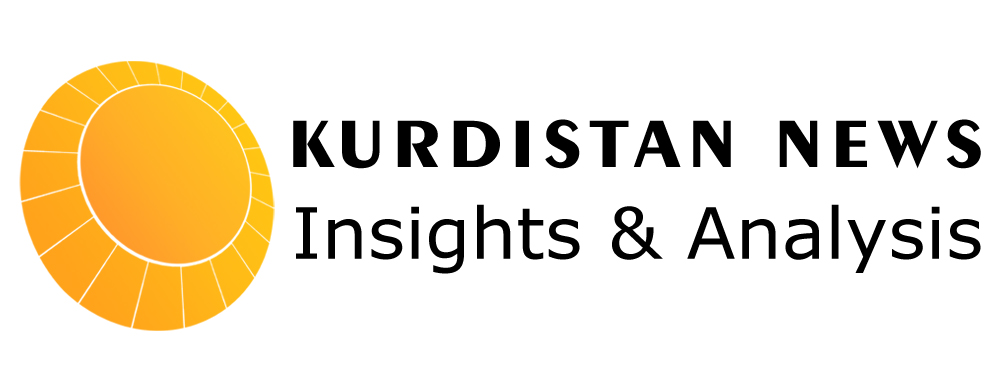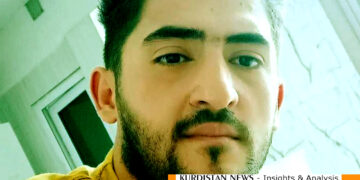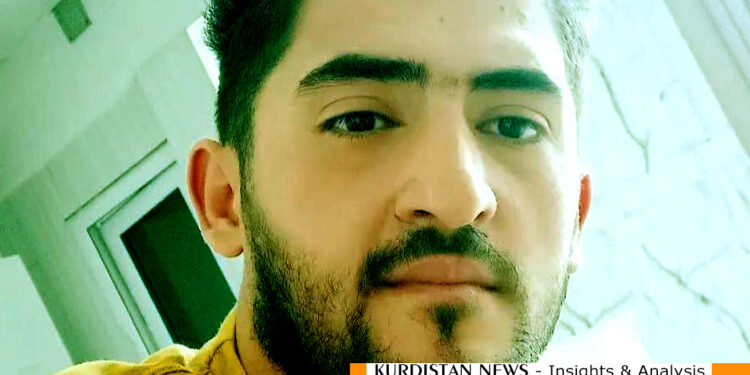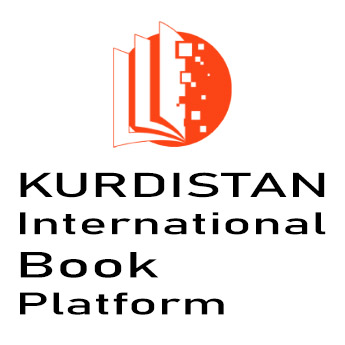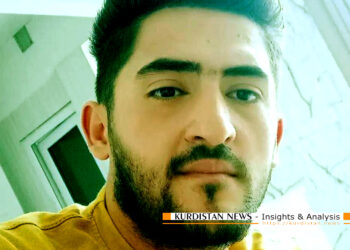Gold, Occupation, and Independence
Political Analysis of the Qolqoleh Protests in Saqqez and the Martyrdom of “Mohammad Amin Rashidi”
Introduction
The events in Qolqoleh, Saqqez, and the martyrdom of Mohammad Amin Rashidi during the protest against the gold mining project cannot be reduced to local incidents, livelihood concerns, or merely human rights violations. What occurred was a clear manifestation of the structural conflict between an occupation economy and the national demand for independence in Kurdistan. The Qolqoleh gold mine was not a developmental project but rather a political-economic instrument of the occupying power designed to sustain domination. The people who resisted the plunder of their land’s resources were not simply dissatisfied farmers or unemployed workers, but members of a nation whose sovereignty has been systematically denied. In this sense, the martyrdom of Rashidi must be understood as a political and national event, not an economic accident.
This article seeks to employ concepts from political science, political economy, and critical sociology to analyze the Qolqoleh events as a symbolic representation of the national question. It demonstrates how the occupation economy, structural violence, and social resistance are intertwined, and why the blood of martyrs in Kurdistan constitutes not merely a tragic memory but a political resource for the future of Kurdistan independence.
The Occupation Economy and the Logic of Domination
In political science, the term occupation economy describes a structure in which the state or a dominant force exploits the natural resources of a land without the participation of its people, transfers the profits to the political center, and leaves the social and environmental costs to the local community. This model is visibly at work in Eastern Kurdistan. The Qolqoleh gold mine exemplifies this logic.
Kurdistan is treated not as an equal component of the political order, but as an internal colony. Its mines are extracted to supply financial resources for the central state — a state that, in practice, acts as an occupying force. The profits never return to Kurdistan. No infrastructure is built, no development occurs, and no livelihoods are improved. On the contrary, the environment is destroyed, agriculture is undermined, water resources are polluted, and the population is trapped in structural poverty.
The purpose of this arrangement is explicitly political: to prevent the emergence of Kurdistan economic independence. A nation deprived of control over its resources cannot build the foundations of political sovereignty. Thus, the occupation economy becomes the primary instrument for sustaining domination.
Economic Resistance and Political Martyrdom
The protests in Qolqoleh against the gold mining project appeared at first to be a defense of land, agriculture, and the environment. Yet the martyrdom of Mohammad Amin Rashidi revealed that the essence of this protest was deeply political and national. He did not sacrifice his life for daily bread or delayed wages, but for the defense of Kurdistan’s rightful ownership of its resources.
In political theory, such events exemplify the politicization of economic resistance — the process by which seemingly economic grievances inevitably transform into national and independence-oriented demands. In Kurdistan, every economic crisis is rooted in occupation, and no economic reform can resolve the issues without addressing the national question itself.
By his act of resistance, Mohammad Amin Rashidi illuminated this connection. His blood demonstrates that independence is not an abstract slogan but a necessity for survival and for economic justice.
Structural Violence and the Politics of Securitization
A defining feature of occupation in Kurdistan is the securitization of every demand. The central state reframes even the smallest economic or social protest as a threat to “territorial integrity.” This logic removes issues from the realm of dialogue and thrusts them into the sphere of repression.
The same occurred in Qolqoleh. A dispute over a mining project — which under normal conditions should have been resolved through public consultation and environmental review — was quickly recast as a “security threat.” The result was direct gunfire and the martyrdom of Mohammad Amin Rashidi. This outcome illustrates that violence is not incidental but integral to the functioning of the occupation economy.
Johan Galtung’s concept of structural violence is relevant here: systems that systematically impose poverty, deprivation, and death on specific populations. In Kurdistan, structural violence operates in tandem with the occupation economy: resource plunder is paired with political repression, and every form of resistance is met with armed force.
Social and Cultural Dimensions of Resistance
The consequences of occupation extend beyond economics and politics; they deeply shape the social and cultural fabric. The destruction of farmland and agriculture generates persistent poverty and forced migration. Many young people are compelled to leave their homeland, eroding social cohesion.
At the same time, these conditions cultivate a new consciousness. People increasingly recognize that their deprivation stems not from scarcity or individual weakness but from the systemic structures of occupation and organized plunder. The martyrdom of Mohammad Amin Rashidi amplified this awareness. He has become a cultural and national symbol, reminding the community that the struggle for independence is not separate from daily life but embedded within it.
In political sociology, such symbols are vital for collective identity formation. The blood of martyrs becomes cultural capital that inspires future generations to resist. The central question now is whether Kurdish society can consciously transform this capital into an organized political force for independence.
The Political and National Question of Kurdistan
The Qolqoleh incident must be situated within the broader Kurdish national question. For decades, this question has manifested in multiple forms: denial of cultural and linguistic rights, plunder of resources, and violent suppression of protests. All are dimensions of the same phenomenon: occupation and the denial of the Kurdish nation’s right to self-determination.
The killing of Mohammad Amin Rashidi cannot be reduced to the language of human rights. It was not merely a violation of the right to life but a direct assault on the demand for independence. He died because he confronted one of the structural pillars of occupation. This event demonstrates once again that in Kurdistan, no issue is merely local or economic; every struggle leads back to the national question.
In political science, independence and self-determination are foundational principles. A community deprived of control over its resources effectively lacks sovereignty. Therefore, the struggle against the plunder of resources in Kurdistan is inseparable from the struggle for independence itself.
Conclusion
The Qolqoleh protests and the martyrdom of Mohammad Amin Rashidi provide a stark illustration of the logic of occupation in Kurdistan: an occupation economy, structural violence, and the denial of self-determination. These events show that even economic protests in Kurdistan inevitably assume a political and national character.
Rashidi was not the victim of an economic accident but the martyr of a national cause. His blood testifies that Kurdistan independence is not an optional aspiration but a historical necessity for survival and justice. This sacrifice will only gain its true meaning if Kurdish society transforms it into a national capital — a resource for organization, resistance, and the march toward independence.
In other words, the Qolqoleh gold mine is not simply an economic site but a political battlefield. Every drop of blood spilled over resources in Kurdistan re-centers the question of independence. The future of Kurdistan depends on whether this awareness can be institutionalized as a collective and organized force capable of breaking the cycle of plunder and repression, and opening the path to freedom and sovereignty.
— S R, Independent Analyst and Commentator, Eastern Kurdistan
— B K, Translation from English into Farsi, Eastern Kurdistan | Download the article in Farsi
